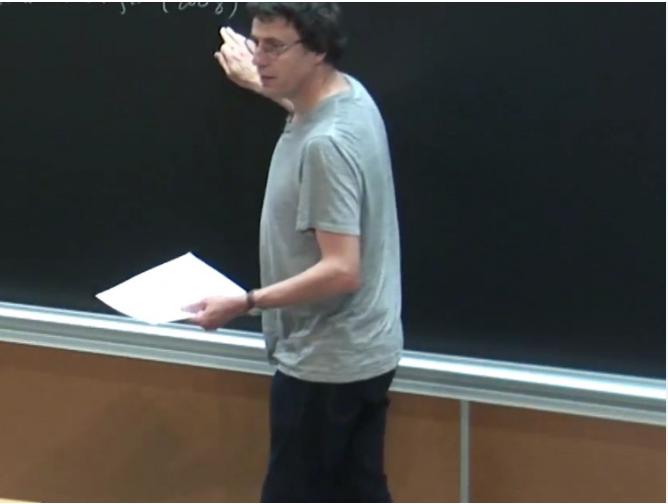兰州大学“聚英萃华”萃英学院学术讲座(第四百三十五场)——Dominique Manchon 研究员
应兰州大学数学与统计学院、萃英学院邀请,法国国家科学研究中心Dominique Manchon 研究员来校举办学术讲座,欢迎全校师生积极参加!
题 目:Combinatorial Hopf algebras and rough paths
主讲人:Dominique Manchon 研究员
时 间:9月11日(周四)14:30
地 点:榆中校区致远楼916
主讲人简介:

Dominique Manchon is Chargé de Recherches (senior researcher) at CNRS, Laboratoire de Mathématiques Blaise Pascal Université Clermont-Auvergne (France). His main research interests are representation theory, algebra and algebraic combinatorics including applications to analysis, in particular rough path theory. He has been invited researcher in Bergen University (Norway), NTNU (Trondheim, Norway), Erwin Schrödinger Institut (Vienna, Austria) and ICMAT (Madrid, Spain). He has been giving lectures and research talks in numerous international conferences and schools in France as well as abroad, in several countries including Tunisia, Norway, Spain, Germany, Austria, Italy, Great Britain, Iceland, Sweden, Denmark, Columbia, Venezuela, Chile and Ivory Coast. His scientific production (more than 50 articles) deals with representation theory of nilpotent Lie groups, deformation quantization and algebra. Combinatorial Hopf algebras, operads and related non-associative strutures (pre-Lie algebras, post-Lie algebras,...), together with their interactions with analysis and geometry, have become his main research topics in the two last decades.
内容简介:
After a quick reminder on groups, I will introduce the notion of Hopf algebra and give two important examples: the shuffle Hopf algebra and the Butcher-Connes-Kreimer Hopf algebra of rooted forests. Other Hopf algebras will be briefly mentioned if time permits: the Munthe-Kaas - Wright Hopf algebra of planar rooted forests, and the Hopf algebra of multi-indices. Some interesting non-associative algebraic structure will show up in the presentation: pre-Lie algebras, post-Lie algebras and Novikov algebras. After a quick presentation of Chen's iterated integrals and their relation to the shuffle Hopf algebra, I will introduce rough paths, and show how this notion can be adapted to any commutative connected graded Hopf algebra. Finally, and if time permits, I also will introduce the important notion of controlled path driven by a rough path.
